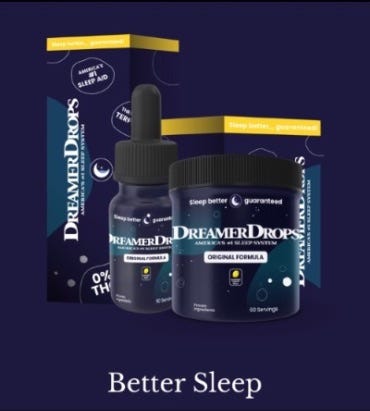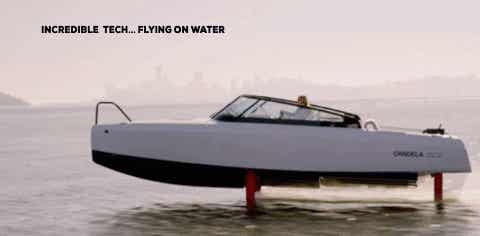The forward-leaning morning newsletter for those
who love all things green
March 20, 2023
Topics: Tech, Google, EVs, batteries, LFP, Ford, American Battery Factory, First Solar, Toledo Solar, Ohio, Candela, electric speedboats
Image: @cannabishub
Your
participation
is what makes
AGREEN1 run and grow.
We are a community, staying informed
so more can have a seat at the table
and keep our planet sustainable for future
generations.
We are the green ones who give a damn
about the Earth and our strength
outnumbers those who don’t.
Thank you, AGREEN1 subscribers
#GRASSROOTS
🌎💚🌍💚🌏
Image: AFP via Getty Images GIF: AGREEN1
😱Is Google more great or more creepy? It is not just during the holidays. Each time you step out of your home for anything, Google likely knows where you are at any given time. Does that creep you out? The tech giant said it keeps track of users' location to be able to offer more meaningful and personalized services to everyone. However, several reports and lawsuits against the tech firm in recent years (see AGREEN1 Feb 6, 2023 issue) revealed its location-tracking activity exposes users to risks. Google eventually updated its location settings and made it more secure, but hackers could steal any user’s information, including their location.
So to be on the safe side, take these steps to turn off your location on your devices if you do not want Google to continue knowing your location again:
Open Google.com on your desktop or mobile browser and log into your Google account. Go to: Manage your Google Account. Select: Privacy & personalization. Select: Things, you've done and places you've been. Select: Location History. Select: Off. This will open a pop-up window. Scroll to the bottom and select: Pause. These simple precautions should keep you safe.
🔋Better batteries A requirement for the successful transition from ICE vehicles to EVs, is to make EVs very affordable in the U.S., and experts advised locally producing most of their components to lower costs. President Biden signed an Executive Order offering funding and incentives to push domestic production of EV batteries. Ford recently announced its intention to start producing lithium iron phosphate (LFP) batteries for its EVs in a new factory in Michigan. The fast charging batteries will create 2,500 new U.S. jobs.
Since the LFP batteries are less costly than traditional lithium-ion used in most EVs today, Ford EVs will be cheaper when the company starts using them in 2026. Meanwhile, ICL-IP America is getting nearly $200 million in investment from the U.S. federal government to build a battery plant in Missouri to make material for LFP cathodes. Another LFP battery plant by an Utah-based company called American Battery Factory is expected to start production in 2026. Green industry jobs are available.
☺️O-H-I-O Toledo, Ohio has a long history with cadmium-telluride (CdTe) thin-film solar. The “Father of Commercialized Solar,” Harold McMaster, first commercialized CdTe modules through his Toledo-based company Solar Cells Inc. (SCI) over 25 years ago. SCI later became First Solar, today the world’s largest thin-film solar producer with 1.9 GW of manufacturing capacity just outside “The Glass City.”
So it wasn’t surprising when a new CdTe manufacturer emerged four years ago in Northwest Ohio called Toledo Solar. Rather than compete with First Solar’s utility-scale dominance, Toledo Solar focuses on serving residential and commercial markets. Now thanks to government incentives supporting domestic production, the two manufacturers are scaling.
Toledo Solar will increase its production capacity from 100 megawatts to 300 megawatts later this year; and First Solar will open its third plant in Lake Township providing 700 jobs. In 2024, First Solar will build a 1.3-million-square-foot research and development facility in Perrysburg and open another solar plant in Alabama in 2025 to increase its total production capacity to 10 gigawatts. Both firms expect to create more than a thousand new jobs.
Images: CNET.com GIF: AGREEN1
🛥️Sweden's electric hydrofoils Luxury boats have not been discussed much on the tables where discussions concerning EV and electric plane transitions occur, but it's clear that the boating sector needs a big fix. Candela, a Swedish speedboat company, is committed to the cause.
According to Candela, a traditional boat uses about 15 times as much fuel per mile as a family car. Candela was recently in the San Francisco Bay to display the advanced zero-emission electric speedboat called C-8 in a bid to break into the massive U.S. boating market. These boats are fast, completely free of fuel odors, loud engine sounds and bumpy rides.
The boat has a 69 kWh Polestar battery and a small, torpedo-shaped direct drive motor called C-Pod. The C-8 could reach a speed of 27 knots (over 31 mph). After about a 2-hour ride, the boat's battery was only down to 30%. It's also much easier to drive than a EV on the road. The company has fixed the price of the speedboat at $390,000.
Stay Curious... Who are we?
Fun question of the day: Are you interested in working in a green industry job?
Who are we?
Last fun question of the day: Are you looking at buying an EV?
100% of respondents said YES
Thanks again for being you. Until the next issue, be sure to add more green to your life!
Enjoy this issue?
Subscribe here and never miss out again.
*Add AGREEN1 to your contacts: info@agreen1.com
* If you use Gmail,
move AGREEN1 emails
to your Primary Inbox
* If you use Apple Mail,
add info@agreen1.com
to your VIP List
* If you use Outlook,
add info@agreen1.com
to your Favorites.
Copyright © 2022 AGREEN1 All rights reserved.
Our mailing address is:
PO Box 19754, Las Vegas, NV 89132
Want to change how you receive these emails?
You can update your preferences or unsubscribe from this list.










